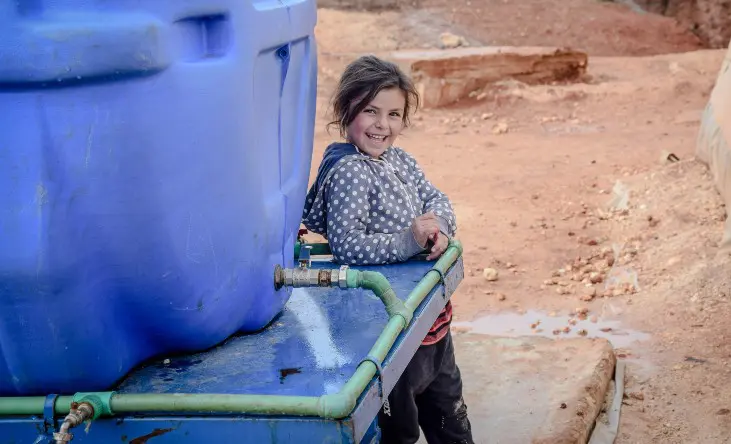SUSTAINABILITY| 15.07.2021
Monica Zuleta: “We need the 2030 Agenda now more than ever”
We are talking about the most ambitious global pact of our time to transform our world and ensure a fairer, safer, more equal and more prosperous world for all. Mónica Zuleta, Group Head of Sustainability at MAPFRE, believes that the 2030 Agenda can and should help change the world. Since the adoption of the 2030 Agenda in 2015, MAPFRE has included concrete projects and commitments in its sustainability plan to contribute to each of the goals, which are ultimately a commitment by everyone. MAPFRE is currently working on seven SDGs of priority action, allowing it to honor #PlayingOurPart.
What is the 2030 Agenda and how do you think it impacts the world?
I would define it as the international community’s road map for the future of society and the planet. I believe it’s our best bet for achieving a true social and economic transformation, something that is needed now more than ever before in order to meet the current and future challenges we face, especially as a result of the pandemic.
The 17 Sustainable Development Goals speak precisely of these significant challenges, which are present in areas such as diversity, justice, health, education, the environment and economic growth. I think it’s also important to bear in mind that all these goals are interconnected, and that working together is imperative for the various goals to be achieved.
What would you highlight about the 2030 Agenda?
I think the 2030 Agenda represents a milestone; for the first time ever, the international community has come to a general agreement about eradicating poverty, reducing inequality and taking action to address the climate emergency. I believe this reflects the urgency and need for this Agenda.
The pandemic exposed inequalities and exacerbated many of the existing problems, so I feel we need the 2030 Agenda now more than ever and think we’ll only be able to overcome this crisis if we meet the goals.

The United Nations tasked the Global Compact with working with the private sector on all these goals. What role do you think companies play in the 2030 Agenda? What actions is MAPFRE taking to contribute to this ambitious agenda?
This pact invites us to have a global point of view without losing sight of the local perspective, which is where we have a more visible effect. That is why I believe that no company can be relevant in the long-term if it does not deal with the well-being of the people who live nearby, in its community. This is something that MAPFRE has always been clear about and has led the company to consider sustainability as a priority area of business management. We believe that the 2030 Agenda can and should help change the world. We are fully committed to its goals, which are ultimately everyone’s duty and commitment.
Which SDGs are you currently working on?
At the moment, we are focusing on seven SDGs of priority action. These are: No Poverty (SDG 1), Good Health and Well-Being (SDG 3), Decent Work and Economic Growth (SDG 8), Sustainable Cities and Communities (SDG 11), Climate Action (SDG 13), Peace, Justice and Strong Institutions (SDG 16), and Partnerships for the Goals (SDG 17).
With SDG 1, for example, we are striving to generate a positive economic and social impact in the more than 30 countries where we are present and create inclusive employment opportunities. With SDG 3, I would highlight our commitment to protecting the health and well-being of our clients and employees, fostering healthy work environments and contributing to accident prevention. Regarding SDG 13, I would emphasize our commitment to a carbon-neutral economy, with increasingly ambitious underwriting and investment targets, with renewable energy projects, and with a clear strategy to protect people in the event of environmental disasters.
“Companies innovate, transform and create wealth, which undoubtedly contribute to the 2030 Agenda”
What do you think are the main challenges for the business sector related to the Decade of Action? What actions is MAPFRE taking?
The 2030 Agenda certainly makes an appeal to the private sector because it considers us to be agents of economic and social development. Companies innovate, transform and create wealth, which undoubtedly contribute to the 2030 Agenda. It also represents a clear opportunity for all companies, as the SDGs show them the path to align their strategies with sustainable development, find new business opportunities, and develop sustainable products and services to generate competitive value. It is also a clear opportunity to respond to social needs, demonstrate their profitability, and ensure that the company’s actions are meaningful to all stakeholders, leaving no one behind.
Since the adoption of the 2030 Agenda in 2015, we have included concrete projects and commitments in our sustainability plan to contribute to each of the goals that we are most involved in. We also participate in various forums and we have a number of work groups to better analyze our impact on the SDGs, and inform stakeholders transparently.
The situation we are experiencing forces us to reflect on priorities, and health, economic development and the protection of the planet are of course some of the most pressing challenges.
“The 2030 Agenda makes an appeal to the private sector because it considers us to be agents of economic and social development”
What actions do you think each of us can take to contribute to meeting the goals of the 2030 Agenda?
I think we all need to work together for the world we want. This is exactly what we mean by #PlayingOurPart, which accurately represents the thousands of actions we can all take to protect the planet and build a present and future for people. I believe that the world changes when each of us does our bit, whether big or small, and it starts with individual actions and with each of the choices we make every day.
The challenge lies in each of us being able to find a way to live as sustainably as possible every day. I, for example, am increasingly convinced of the importance of responsible consumption, recycling more, opting for local foods, and promoting equality and inclusion, and ultimately, using our personal social responsibility as a lever for change. We have to be a good example for future generations, as they are the ones who will who take over.

